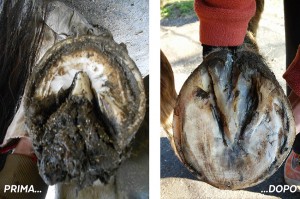Beethoven is not with us anymore.
This morning, after a long talk with our Vet we agreed to not operate Beethoven. His chances to heal were so slim but the pain he was about to confront was so high that out of respect and love for Beethoven I decided to let him go to sleep. I cannot explain what a difficult decision this was, nor can I explain the pain I am feeling now.
Lucky has lost a long time friend – we shall miss you Beethoven. Happy Trails!

